The SimGate™ Skills Practice Platform
The industry’s only personalized Skills Practice platform that’s maximized by AI and backed by brain science
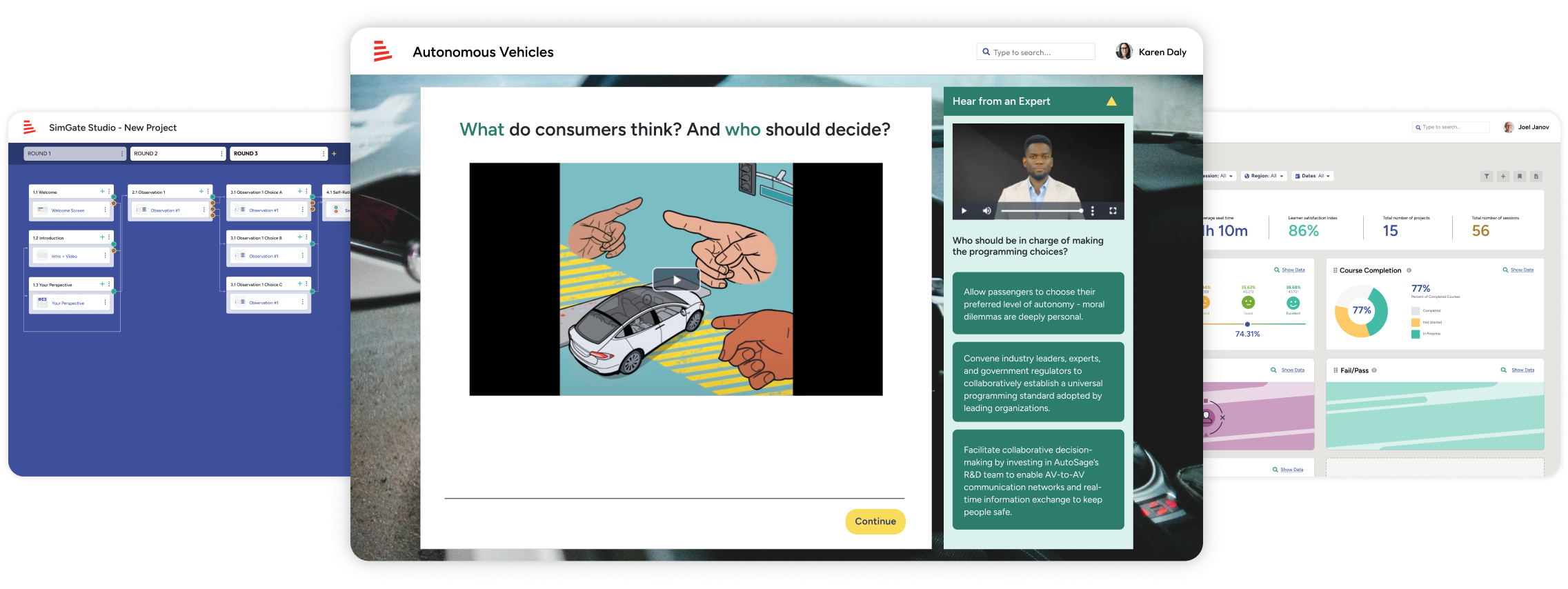

We’ve Redefined What’s Possible in Learning Design,
but the magic is all you.
Finally, wield the power to bring learning experiences you’ve always imagined to life, with The SimGate™ Skills Practice Platform.
90%
cost savings in Design and Development
75%
cost savings in asset creation
50%
cost savings with Subject Matter Experts (SMEs)
 DISCOVER
DISCOVER
Start the Journey
Identify your learner’s skill gaps, set measurable goals, and align your learning outcomes to your core business objectives.
 DESIGN
DESIGN
Design Co-Author
Multiply your design efficiency and program impact with an AI co-author that empowers you to build personalized learning programs in minutes, not weeks.
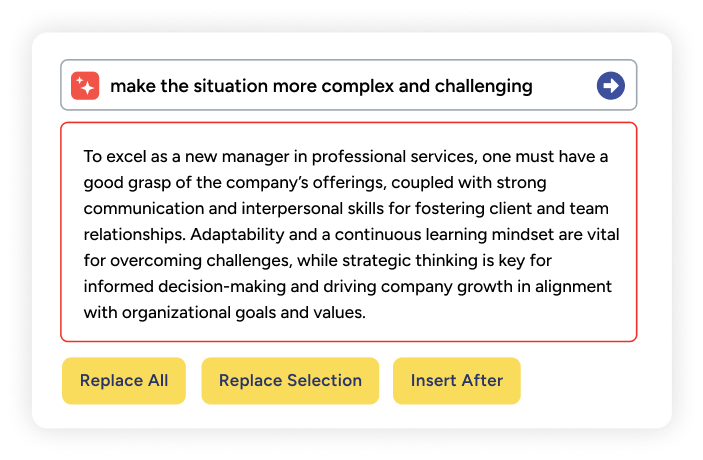
 DEVELOP
DEVELOP
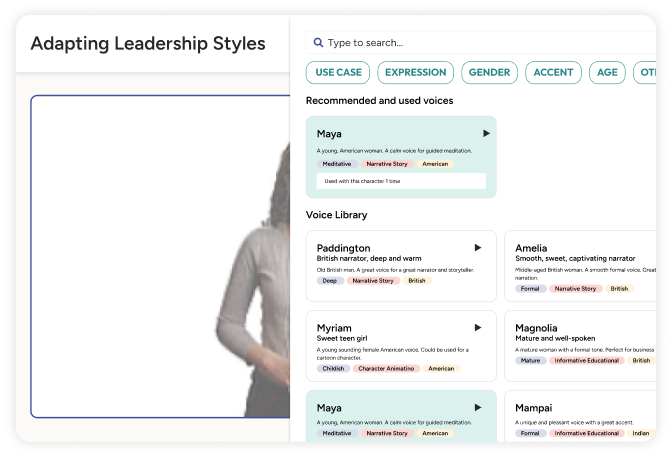
AI Integrations
From automated content design to interactive avatars, artificial intelligence makes learning and design a truly animated experience.
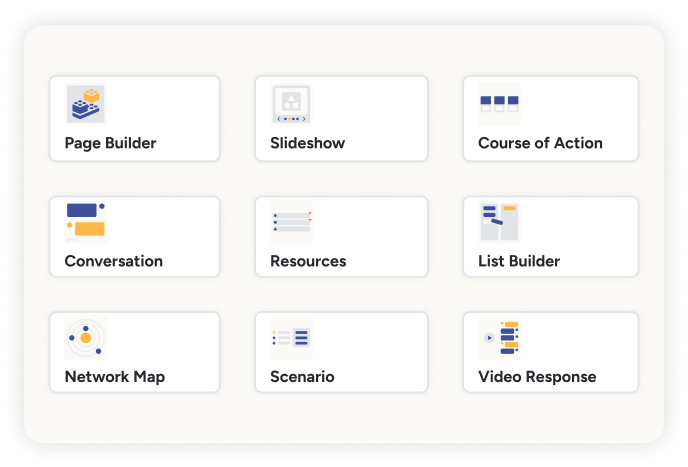
Template Libraries
Get to a high-quality first draft in record time when you build on our library of flexible templates for content and learning activities.

Adaptive Learning
Get to a high-quality first draft in record time when you build on our library of flexible templates for content and learning activities.
 DEPLOY
DEPLOY
Delivery
Deploy, repurpose, and republish as much as you want, with virtual or on-site facilitation––anytime, anywhere.
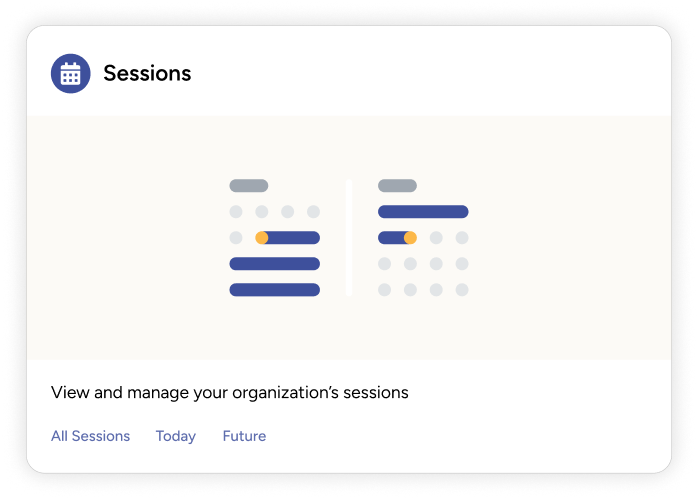
Reporting and Scoring
The industry’s most personalized scoring suite gives learners real time feedback tailored to their role and lets administrators customize metrics to drive business goals.
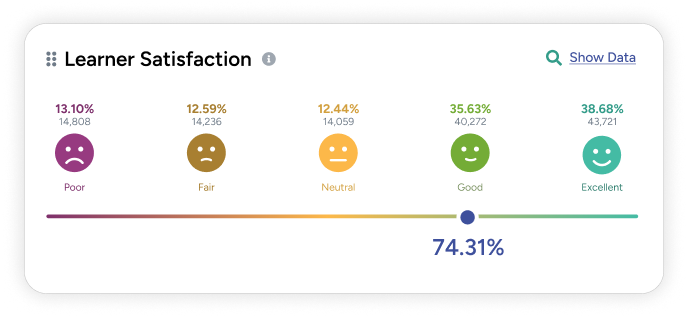

Trust is Key, So We Keep Your IP on Lockdown.
The Regis Company maintains enterprise-grade security and compliance standards, with content integrity, rigorous privacy, and authentication.
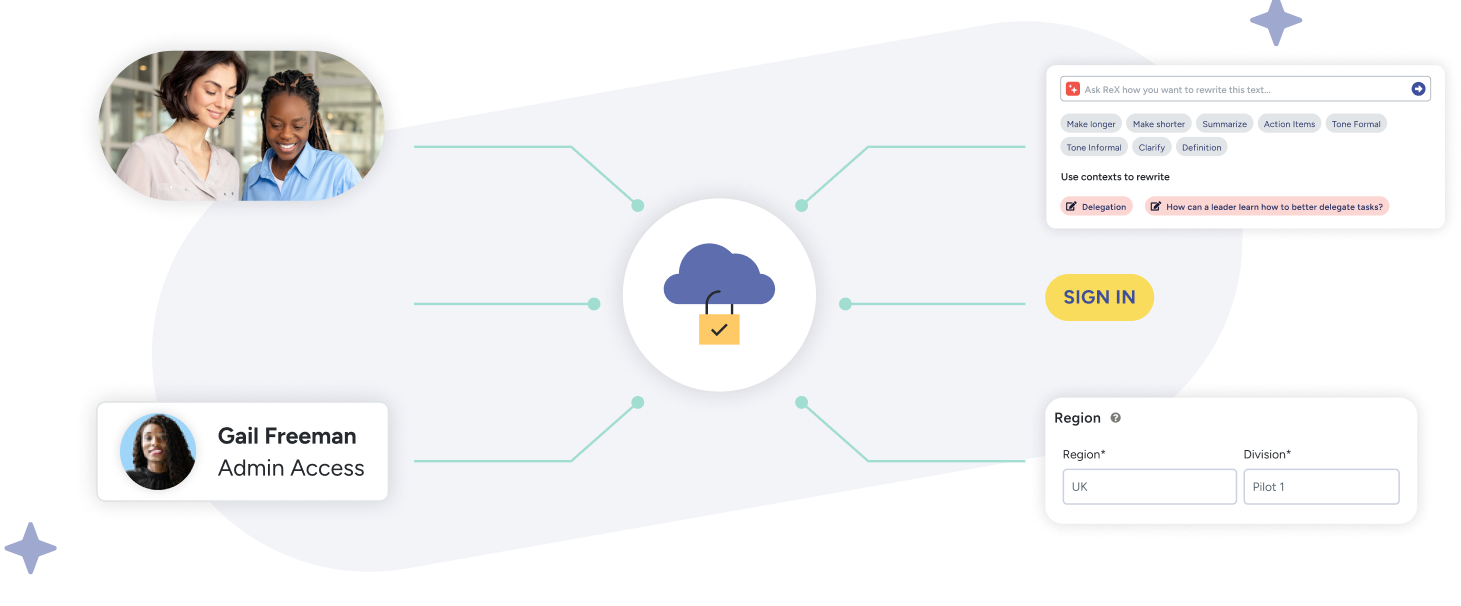
Schedule a Demo
Take learning to the max with us. Enter your email, and we’ll schedule a time to show you the magic of The SimGate™ Skills Practice Platform.











